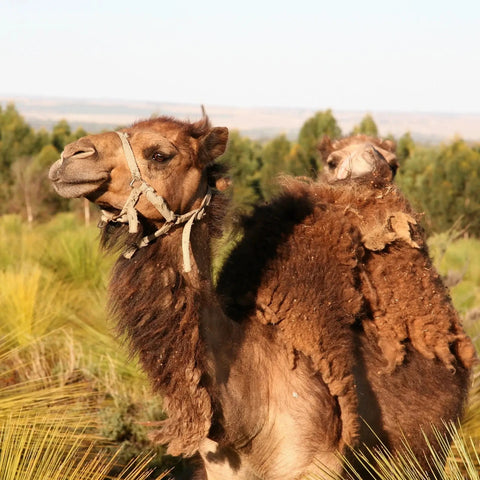Benefits

A Super Food
Camel milk is a natural source of nutrition with unique advantages that set it apart from other milks. It is allergen-free, making it safe for children and adults with dairy sensitivities, and gentle on digestion thanks to lower casein levels, a unique protein structure, and tiny fat globules that support smoother digestion.
It is also nutrient-rich, providing copper and zinc for immunity, iodine for brain health, and calcium and magnesium for strong bones and muscles. With 50% less saturated fat and only 70% of the lactose found in cow’s milk, it is better tolerated by those with lactose intolerance, diabetes, or obesity.
Its infant nutrition potential is significant, being CMPA-free, closer to human milk, and easy to digest, making it an excellent option for premium infant formula—a market Good Earth Dairy is developing.
With a mild, creamy flavour, camel milk is easy to enjoy in drinks, cooking, and cereals, while Good Earth Dairy’s award-winning cheeses and kefir are virtually indistinguishable from cow’s milk products. Altogether, Good Earth Dairy delivers a superior, ethical, sustainable, and scalable alternative to traditional dairy.

Safe and Healthy to consume
1. Yagil, R. Camels and Camel Milk. Food and Agricultural Organisation (FAO) Animal Production and Health. 1982
2. Roberto Ronald de Almeida, C. Camel Milk: Characteristics and perspectives for use in clinical practice. Rev Chil Nutr 2011, 38(2):211-218
3. Good Earth Dairy milk analysis on saturated fat
4. Embleton ND, Berrington JE, McGuire W, Stewart CJ, Cummings SP. Lactoferrin: Antimicrobial activity and therapeutic potential. Seminars in Fetal and Neonatal Medicine. 2013 6//;18(3):143-149.
5. Raei M, Rajabzadeh G, Zibaei S, Jafari SM, Sani AM. Nano-encapsulation of isolated lactoferrin from camel milk by calcium alginate and evaluation of its release. Int J Biol Macromol. 2015 8//;79:669-673.
6. Agrawal RP, Jain S, Shah S, Chopra A, Agarwal V. Effect of camel milk on glycemic control and insulin requirement in patients with type 1 diabetes: 2-years randomized controlled trial. Eur J Clin Nutr. 2011;65(9):1048.
7. Arab HH, Salama SA, Eid AH, Omar HA, Arafa E-SA, Maghrabi IA. Camel’s milk ameliorates TNBS-induced colitis in rats via downregulation of inflammatory cytokines and oxidative stress. Food Chem Toxicol. 2014 7//;69:294-302.

